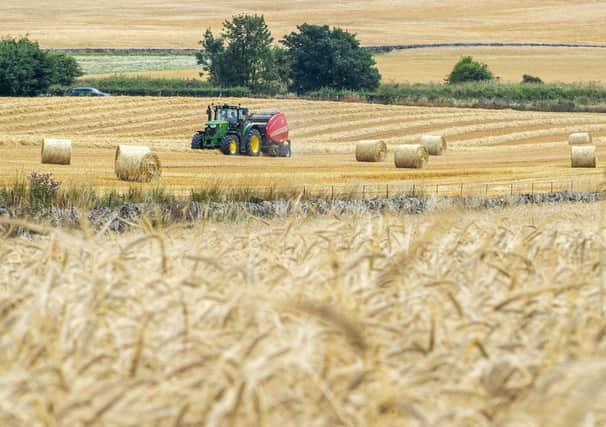Farming: Land use change to tackle climate issues on agenda


That was the conclusion of a report by the Scottish Ecological Design Association (SEDA) which claimed there was an urgent need for a revolution in Scottish land use.
The report, which was presented to Scottish ministers yesterday, was based on a series of six “conversations” involving designers, architects, businesses, campaigners and the general public – and the eight point-programme outlined in the document will form the basis for discussions at an on-line conference to take place on 6 September.
Advertisement
Hide AdAdvertisement
Hide AdCalling on the Scottish Government, councils and landowners to take “urgent and combined actions” to tackle the climate emergency and biodiversity crisis, the report stated that the rapid development of new strategies and plans alongside reforms to existing regulations were required.
The report also launched SEDA Land, a new forum for SEDA members and experts in land use to continue the discussion, seek to influence land use change and monitor progress made by the Scottish Government, local authorities, land owners and businesses in implementing the changes needed.
The report, entitled A New Vision for Land Use in Scotland, indicated that the implementation of new Healthy Food, Agroecology and Sustainable Place strategies should be combined with strengthened requirements under the Land Rights and Responsibilities Statement as well as Climate Impact Certificates detailing land use impacts.
“The …report also calls for continued investment in transport, renewable energy and communications infrastructure across Scotland along with seed funding for innovative new businesses,” said SEDA events organisers, Gail Halvorsen.
“The integrated approach would be underpinned by support for secondary and tertiary education in creating a climate conscious, motivated and skilled workforce,” she added.
“I felt there was a need for a broad-ranging event on the future of Scotland’s land use in view of the climate emergency and COP26,” said Halvorsen, who added that the conversations could spark the greatest change in Scottish land use since the agrarian revolution.
“Our Land Conversations series provided a platform for ideas and experiences to be discussed. This report provides a flavour of the rich debate sparked during these events and eight recommendations we believe the Scottish Government needs to implement rapidly,” said chair of SEDA, Catherine Cosgrove.
Deborah Roberts, Deputy Chief Executive at the James Hutton Institute said that a sustainable future for Scotland’s land could only be built on a cross-sectoral and multidisciplinary basis, and through the use of principles which took into account people’s needs, sense of community, place and tradition – “all of which vary from one region to the next.”
Advertisement
Hide AdAdvertisement
Hide AdThe SRUC’s Professor Davy McCracken, added: “It is clear that a ‘single policy, single outcome’ approach does not address the needs of rural areas. What is needed urgently is cross-sector policies which are integrated and can deliver across a broad set of issues.”
Comments
Want to join the conversation? Please or to comment on this article.